LSU Pivotal Football Moments
pivotal college football moment: A decision by a coach or athletic director that changes the momentum of a program or an action by a player that changes the momentum of a game.
pivotal college football moment: A decision by a coach or athletic director that changes the momentum of a program or an action by a player that changes the momentum of a game.
When LSU resumed football in 1919 after not fielding a team the previous year because of World War I, Irving Pray was hired as the coach for $1,200.
Pray's Tigers won their first four games before losing to Mississippi State. Then they beat Mississippi College before losing to Alabama. That cleared the decks for the annual finale against archrival Tulane at Heinemann Park in New Orleans.
Located at the corner of Tulane and Carrollton Avenues, Heinemann Park was the home of the New Orleans Pelicans baseball team.
LSU fans hadn't forgotten the 28-6 whipping the Green Wave gave the Tigers in 1917. Whether Pray would continue as LSU coach would probably be determined by the outcome of the game. However, LSU athletic director, Dr. C. C. Stroud, announced the day before the game that "Pray is quitting football after this season, and we had this understanding when he took charge of the team." A sugar chemist, Pray wanted to return to Cuba and "settle down and work 52 weeks at my profession."
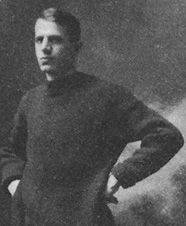
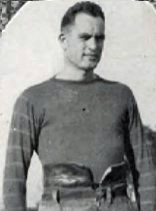
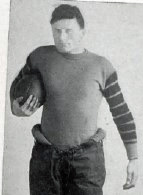
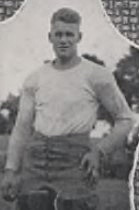
L-R: Coach Irving Pray, Tom Dutton, Joe Bernstein, Bewrt Busse
(Pray Louisiana Digital Library, Dutton and Busse LSU Gumbo Yearbook Class of 1909)
Pray Makes Bold Prediction
Pray finished his tenure with a bang. He switched his top lineman, 215 lb captain Tom Dutton, from center to tackle and developed a game plan around power runs by 210 lb FB Joe Bernstein, who, like Dutton, had returned to gridiron action following military service. (Dutton had lettered at LSU in 1912 and '13 and Bernstein in '15 and '16.) Pray was so confident of victory that he wrote a large "21" on the blackboard and told the team that's how many points they were better than 6-0-1 Tulane.
The crowd of 7,000 saw Bernstein, running behind Big Tom, Tom's 245lb younger brother Pete, and 215lb Bewrt Busse, smash through the Greenie line for two third quarter touchdowns to extend LSU's 7-6 halftime lead on the way to a 27-6 victory - the exact margin that Irving had predicted before the game. Bill Keefe wrote in the Times-Picayune the next day that Bernstein "never smashed through Tulane's line for any big gains ... but when a gain was needed right down in the shadow of the enemy goal posts, there's where Bernstein delivered."
FINAL SCORE: LSU 27 TULANE 6
Pray was the toast of Baton Rouge because the 1,000 Tiger fans who traveled on the "football special" train to New Orleans returned with pockets full of money won betting on LSU.
Three days after the game, the LSU cadets held a funeral ceremony on campus. At the end of the game in the Crescent City, they had rushed across the field, dismantled a scaffold, and taken the casket that Tulane fans planned to use to bury a mock tiger. The cadets placed a "goat" in the casket and took it on a procession through downtown Baton Rouge to its burial place.
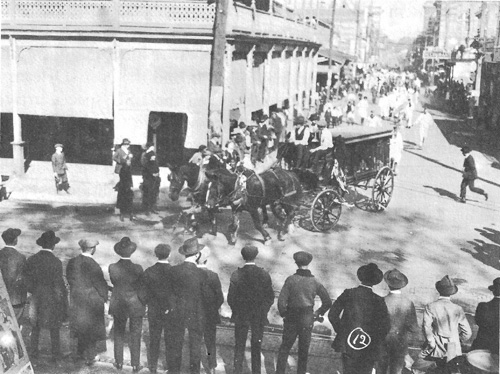
1919 funeral procession to bury the Tulane goat